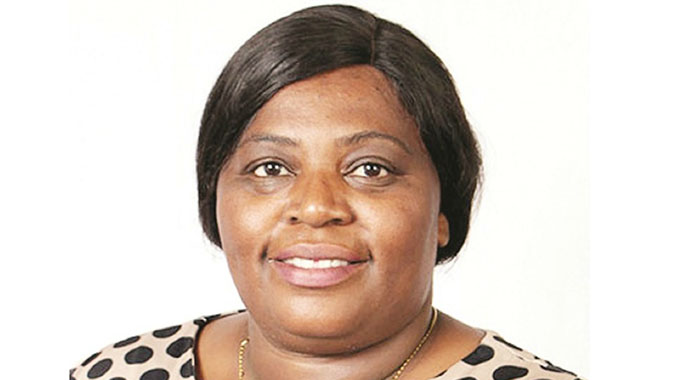‘NDS1 anchored on devolution, hard work’

Zvamaida Murwira
Senior Reporter
National Development Strategy 1 (NDS1), the Government’s economic blueprint running from 2021 to 2025, will be anchored on devolution and decentralisation plus prudent use of public resources.
In addition, it will focus on mainstreaming gender, youth, women, and on the economic stability already achieved, President Mnangagwa said yesterday.
Launching the economic blueprint at State House in Harare, the President said Government will continue implementing robust, innovative and responsive strategies with the NDS1 seeking to continue with the entrenchment of democracy, constitutionalism and rule of law.
Cabinet would closely monitor actual results and take remedial action when anything slipped, but the President noted that success would need maximum effort by everybody in a united drive to develop “the Zimbabwe we want and need”.
NDS1 is the second step of the Second Republic’s drive to attain Vision 2030 of achieving a middle income economy in the next decade and succeeds the Transitional Stabilisation Programme (TSP) that ran from October 2018 to the end of this year, and which through rigorous fiscal and monetary reform created the required stable economic foundation for growth and development.
“The attainment of Vision 2030 is partly premised on the devolution and decentralisation agenda, which empowers provinces, districts and communities to implement development strategies which are informed by their respective resource endowments and competitive advantages. This must see greater innovation, modernisation, industrialisation and increased investments across all provinces and districts of our country,” said President Mnangagwa.
He said undeserving and illegal sanctions imposed on Zimbabwe by some Western countries would continue to militate against economic growth and development but could not stop Zimbabwe moving forward.
“In spite of these sanctions, we have not buried our heads in the sand, but instead implemented robust, innovative and responsive strategies to grow and develop our economy,” he said.
The launch of NDS1, said President Mnangagwa, coincided with an encouraging economic trajectory of stability which had registered large falls in month-on-month inflation following a total overhaul and subsequent stability in foreign exchange markets with the auction system, and that in turn made possible by the fiscal reforms that have seen the financial sector registering positive national reserves.
“In view of the above, the NDS1 will therefore be rolled out under better economic conditions than the TSP and carries with it bold strategies and policies to catapult economic growth,” said the President.
The NDS1 was a culmination of extensive consultations in Government, private sector, Political Actors Dialogue, labour, civil society, academia and development partners among others.
The prudence and adherence to good governance would continue, he inferred, along with the new governing culture of basing plans on realities and results. During the implementation of the NDS1, the Government would insist on value for money and visible results which impact on the day to day well-being of ordinary people through prudent use of public resources, good stewardship, purposeful and strategic deployment of resources.
“Informed by the lessons learnt to date under the Second Republic, a key design feature in the NDS1 is the synchronisation of the National Budget and the National Plan implementation process. Consequently, Ministry Strategic Plans have been aligned to the NDS1 and the National Budget which will soon be presented by the Minister of Finance and Economic Development,” he said.
The NDS1 has mainstreamed a lot of cross-cutting issues that include gender, youth, women, people living with disabilities, employment, people living with HIV, environment and climate, social accountability, ICTs, capacity building, culture and value systems among others.
“The Agriculture and Food Systems Transformation Strategy will continue to be boldly implemented towards a vibrant US$8,2 billion agriculture sector that will achieve national food and nutrition security,” the President said.
President Mnangagwa said the modernisation of the manufacturing sector would be speeded up through deliberate, practical innovations and inventions so that goods could competitively penetrate global value chains and markets.
The NDS1 framework will ensure sustainable growth of the mining sector towards the US$12 billion mining sector economy.
Some of the areas the NDS1 focuses on are infrastructure, digital economy and housing delivery to avail affordable and quality settlements in urban and rural areas.
“The NDS1 is set to perpetuate our character as a united, peaceful, stable and unitary state. The entrenchment of democracy, constitutionalism, justice and the rule of law will be enhanced,” he said.
“Under the Second Republic, the engagement and re-engagement policy has resulted in an improved country image and more astute international relations. Going forward, during NDS1 period, dynamic information management and dissemination strategies
will be bolstered for mutually beneficial outcomes within the community of nations,” said President Mnangagwa.
The implementation and realisation of targets of the NDS1 will be closely monitored and evaluated through appropriate frameworks.
“A robust monitoring and evaluation mechanism of NDS1 will be established to ultimately report to Cabinet which will assume full responsibility of the implementation processes and take timely remedial and responsive policy decisions as required,” he said.
He called for every Zimbabweans to “roll up their sleeves” and prepare to work for the successful implementation of NDS1.
“In line with our culture of dialogue, the implementation of the NDS1 will entail continued dialogue and engagement to maintain the consistency and pragmatism that saw us achieve the successes of the TSP,” said President Mnangagwa.
The event was attended by Vice President Constantino Chiwenga, Vice President Kembo Mohadi, Government ministers and senior Government officials.
The third step in the reform and development process will be National Development Strategy 2 to be implemented from 2026 to 2030.
The blueprint will run under the theme “Towards a Prosperous and Empowered Upper Middle Income Society by 2030”.









Comments